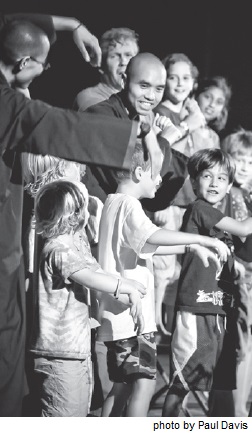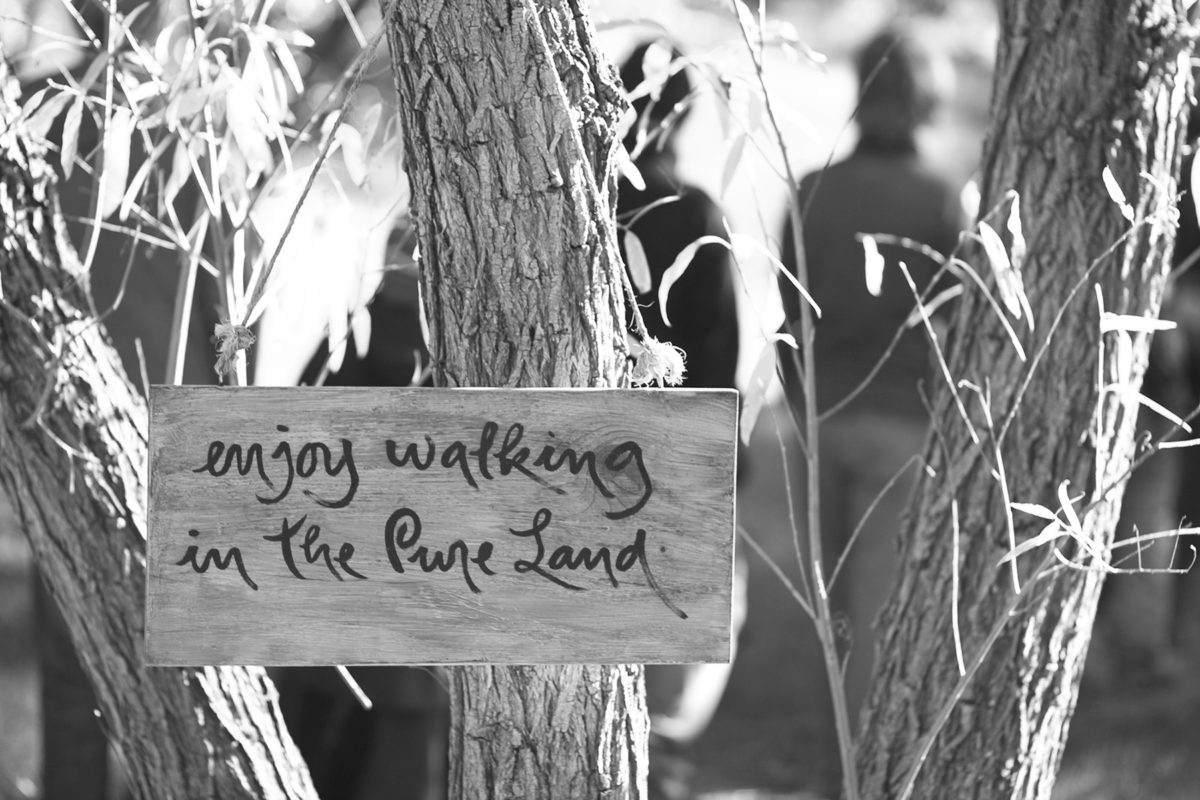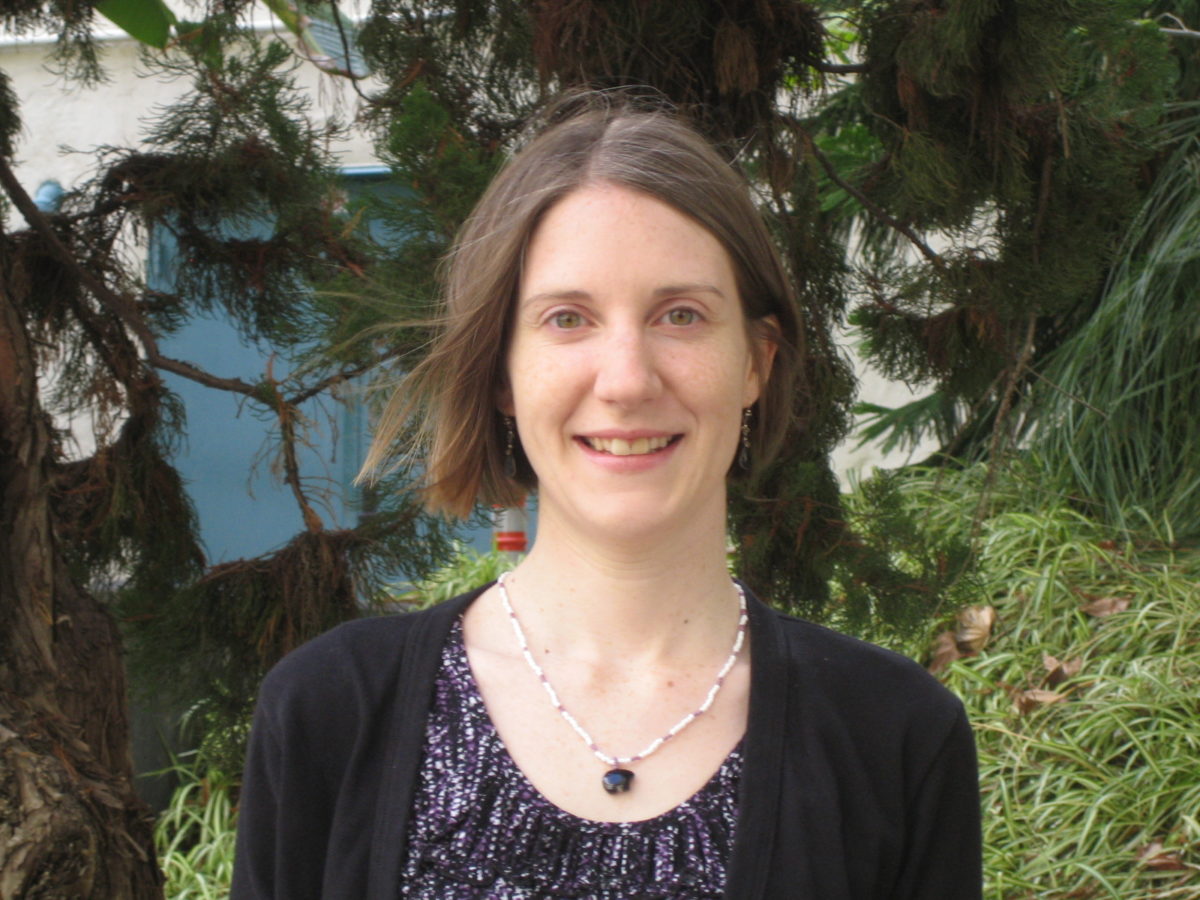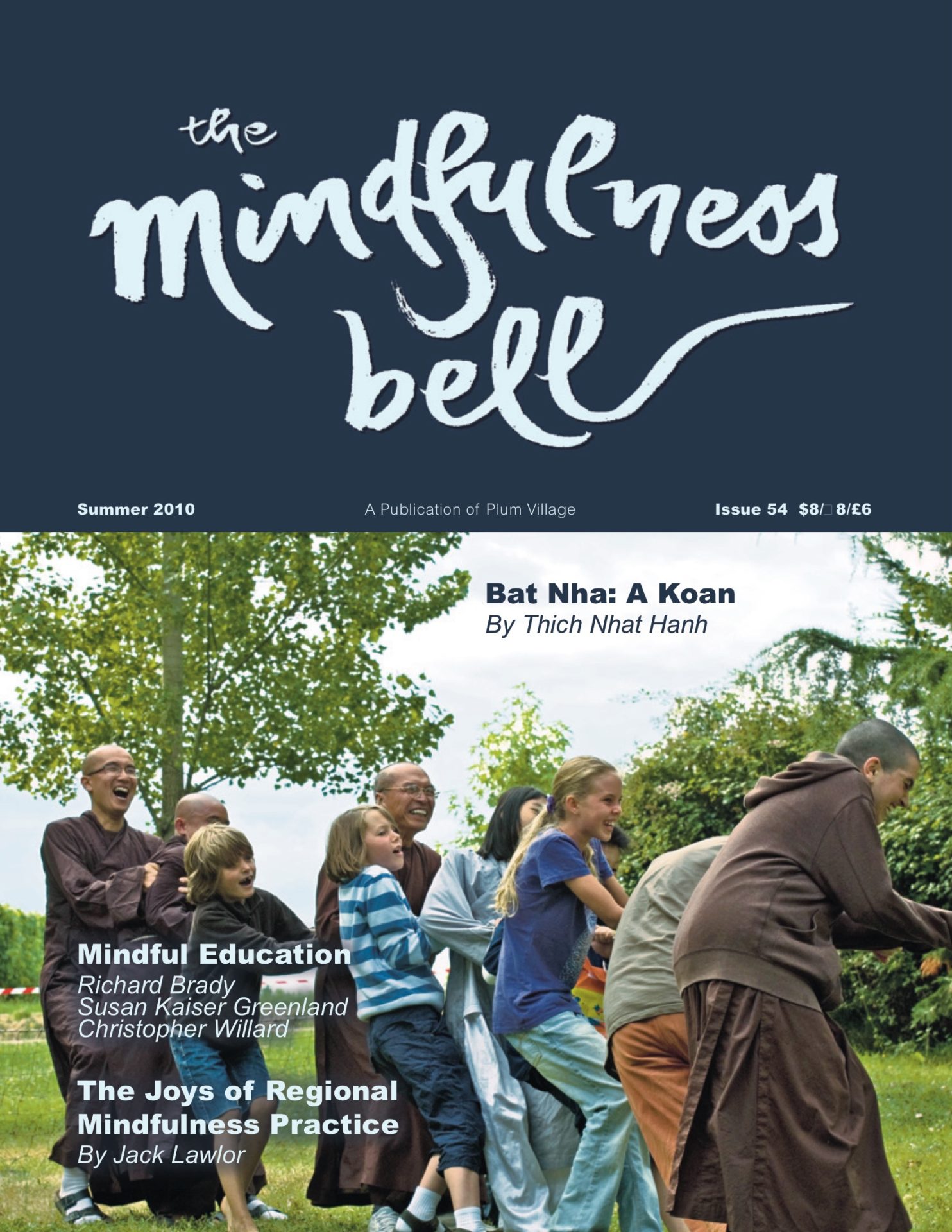By Sara Unsworth

“If you want to think like a hummingbird, be the hummingbird.”
– Sister Dang Nghiem
Arriving at Deer Park Monastery for the Meditation and Education Retreat last November, I kept having one recurring thought: I want to learn how to connect to students. As a new, young professor, I was surprised at how disconnected I felt from the undergraduate students in my classes.
By Sara Unsworth

“If you want to think like a hummingbird, be the hummingbird.”
- Sister Dang Nghiem
Arriving at Deer Park Monastery for the Meditation and Education Retreat last November, I kept having one recurring thought: I want to learn how to connect to students. As a new, young professor, I was surprised at how disconnected I felt from the undergraduate students in my classes. Had so much changed in the nine years since I was an undergrad? Was this a generation gap? Was it because I was Canadian? How could I support American students if I didn’t understand what they were going through? This retreat was an opportunity to figure these students out. I decided I would watch. I’d listen. I’d lurk.
It didn’t take long before the collective consciousness at Deer Park cut through my reality. “No lurking,” joked Brother Phap De at the registration desk, as he made suggestions about what I could do for the hour before dinner. How did he know? Monastic mind meld? Nah—coincidence. I left the registration desk smiling as I retreated effortlessly into my sense of separateness, my ego mind.
Walking around before dinner, I came across two students. We smiled, and one student remarked that he had nothing to do for the next hour and didn’t know what to do with himself; he was used to running from one thing to the next. The other student asked with a sense of intrigue and excitement, “Are you Buddhist? Because that would be cool.” Exhaustion and openness to Buddhism—I could easily identify with both of those sentiments.
Eating meditation was followed by a brief walking meditation and orientation, led by Sister Dang Nghiem (Sister D) and Sister Hang Nghiem. We sang songs together, but we started off quietly and with some trepidation. To bring us out of our shells, Sister D reminded us: “We’re young, strong, and idealistic at this age, so let’s really sing!” And we did! Listening to Sister D and singing with the Sangha, I remembered a time when I saw my life as a path of change and growth, when I felt I could do anything, when I thought I could change the world. Life felt a little difficult for me at that time, but I really believed that every moment was an opportunity.
Looking around now and recalling that excitement for life, I understood something that gave rise to a feeling of joy. The issue wasn’t about connecting with students. If there was a missing connection, it was with myself.
Later that night I felt the energy of the young women in the tent next to me as they oscillated between gentle giggles and roaring laughter. I imagined they were young coyotes roaming free on the side of the hidden mountain. What spirit! The next day, speaking with a few other professors, I learned that one of them had shed a tear of joy when she heard Sister D’s words, and another felt as though Sister D had been talking directly to the professors: “We are young and strong!” (A Pat Benatar song pops into my mind.) “We can be idealistic too. We can be coyotes roaming the mountainside, if that’s who we want to be. The world is full of possibilities.”

Reflecting more on my youth (well, my earlier youth), I was able to touch both the joy and suffering I experienced as a student. I had a sense of excitement for learning about the world and traveling it, and a feeling that I could become anyone I wanted to be. But I also felt an intense need to prove myself and to compete for the top spots. It was a zero sum game: somebody was going to win and somebody was going to lose. As a graduate student, I was told by professors that I didn’t know how easy I had it. These seeds had been watered in me, and recently I had found myself looking at students with the same lack of compassion. I realize now that it is very difficult to be a student when professors look down on you. I can see myself in my students, and I can see them in me. I would like my job to be focused on supporting students, rather than testing and judging them.
I was a student for the remainder of the weekend. I learned from the students, teach-ers, and monastics, and also from myself. I sat in silence with the Sangha. During orienta-tion, the students were asked how many had never sat in silence during dinner, and most raised their hands. I walked in silence with the Sangha—a group of people moving in the direction of peace and happiness. I allowed the mindful breath of others to become my mindful breath.
During the Dharma talk, I sat as a student and learned from Brother Phap Dung about challenging the status quo in our lives, hearts, and minds. During an activity focused on the mindfulness trainings, I sat as a student and heard other students talk about true love, interbeing, gratitude, compassion, and tolerance. One student reminded us all of the importance of loving deeply and listening with compassion. What wisdom!
Later that night, the young coyotes were at it again, and this time they were howling to the tune of “One finger wiggles, one finger wiggles, one finger wiggles, it’s enough to be happy…” The next day we hiked in silence to the top of the mountain and did sitting meditation above the clouds. It was very healing to feel supported by the earth as we sat solidly in the present moment. During a question and answer period later that morning, students asked about bringing the kind of love and tolerance they experienced inside the monastery out into the “real world.” Brother Phap Dung turned our attention to the world we are, by discussing connections between our inner peace and peace in world, and by encouraging us to approach life with openness.
Brother Phap Dung suggested that we consider the ability to cultivate happiness as a necessary skill for any job or career. I realized that I could rewrite my job description as a professor to include cultivating happiness. I hope to cultivate this happiness in my classroom and in my relationship with students. I see that in order to connect with students I have to find the student inside myself, and that providing support for students depends on my ability to cultivate happiness for myself. Learning how to water the seeds of compassion for the student within me will allow me to find compassion for the students I mentor, and will also allow me to find the teacher inside myself.
I do not want to be a robot, programmed by ideas of being a professor that are based on a desire for admiration, achievement, respect, and fame. I will move in the direction of love and compassion, and will cultivate the ability to mentor with a heart that is open to the suffering and idealism of students.
I am grateful to all of my teachers, including those who attended and helped to organize this retreat, and those who have been a part of my life and the lives of my ancestors. I’ll end with the words of a graduate student who also came to the retreat: “It was, like, the best thing I have ever done, ever.”

Sara Unsworth, Joyful Stream of the Heart, practices with the World Beat Sangha in San Diego, California. She grew up in Alberta, Canada. She now teaches psychology at San Diego State University.

